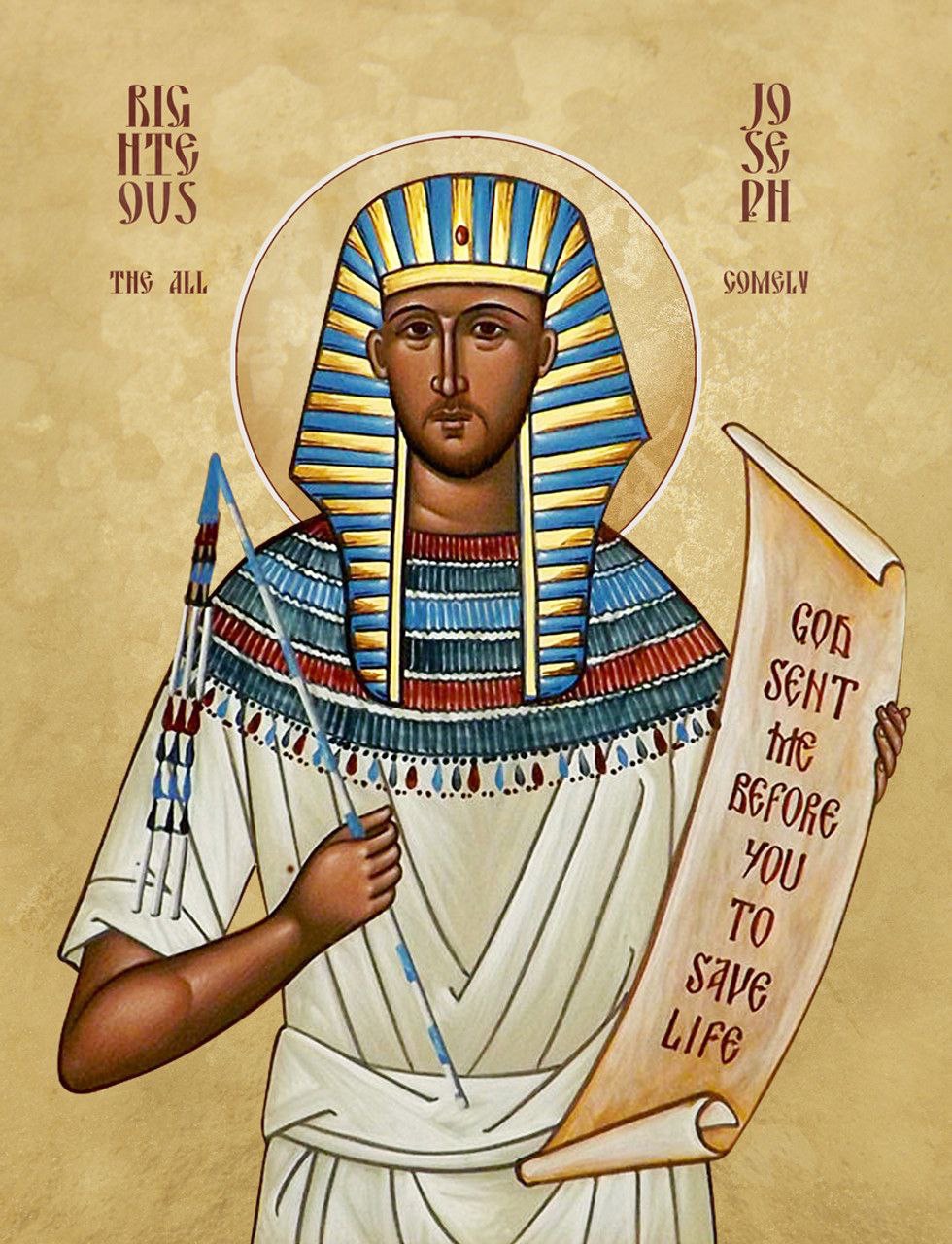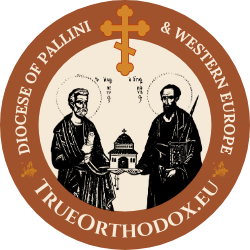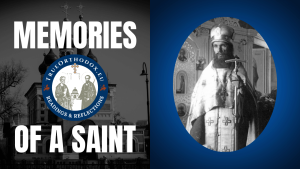Joseph the All-Beautiful

By Priest Aleksandar Radunovic
A Shadow of Christ in the Darkness of the Pit
“And they took him and cast him into a pit. And the pit was empty, there was no water in it.” (Genesis 37:24)
I. The Beloved Son Betrayed by His Brothers
He is the son of beloved Rachel, the child of Jacob’s old age, a blessing born in tears. He is the secret of his father’s heart, for Jacob loved him more than all his other sons—not from injustice, but from grace. Joseph was not like the others. His gaze was gentle. His speech—pure. His life—meek. And therein lies the cause of their hatred.
“They hated him and could not speak peaceably to him.” (Gen. 37:4)
Just as the world cannot endure purity, just as righteousness and wickedness cannot dwell in the same house, so his brothers could not endure him. And darkness begins—envy, that first demon which stirred Cain against his brother. Envy—the mother of all heresies, the source of every falling away. And Joseph, though innocent, is condemned. He bears no guilt. He does not know why he suffers. But he does not murmur. He does not judge. He does not resist.
O icon of Christ in the Old Testament! You, who do not yet know the word “Crucifixion,” yet already live it!
II. Joseph in the Pit: Like Christ in the Soul of Hades
His brothers cast him into a pit. Into an abyss. Into emptiness. And the pit was dry. It is a darkness without mercy. For physical bondage alone is not enough—there is also the sense of abandonment, the silence of God, the voiceless solitude.
Here, Joseph is a shadow of Christ, who many centuries later would descend into Hades—not because He bore sin, but because love led Him among the dead, to deliver them. Where man expects nothing more—there the power of God begins.
The pit of Joseph is the foreshadowing of Christ’s tomb.
Joseph is innocent suffering.
Joseph is the silence of the righteous one who does not curse, but waits.
III. Sold for Silver: Icon of Christ’s Betrayal
His brothers draw him up—not to save him, but to sell him. For twenty pieces of silver. Like cattle. Like an object. Joseph is the first to be sold by his own kin. And Christ would be sold for thirty, not by blood brothers—but by a disciple in Spirit.
Betrayal by enemies wounds the body.
But betrayal by friends rends the heart.
And what does Joseph do? Nothing. He does not curse. He does not cry out. He surrenders. He goes to Egypt—just as Christ will go into the city of man, into the world of sin. Not to be enslaved—but to show, in humiliation, the path of salvation.
IV. The Temptation in Potiphar’s House: Righteousness in the Fight
There, in a foreign land, in a foreign house, among foreign gods, Joseph grows. He does not fall. He guards himself. But temptation comes: the master’s wife desires him. Not with love—but with lust. And like a new Eve, she offers a fruit that leads to death.
But Joseph flees. He does not explain. He does not play. He saves himself—not with courage, but with the fear of God.
“How then can I do this great wickedness, and sin against God?” (Gen. 39:9)
He knows: to sin in secret is to die before God. He does not weigh the price of punishment—but the price of lost innocence. And so the false woman accuses him—and again he is thrown into prison.
V. A Second Descent into Darkness—But the Lord is With Him
Now Joseph is in deeper darkness. A double sufferer: once by his brothers, now by an unjust judgment. There, in the depths, he serves. He does not grumble. He does not seek revenge. He interprets dreams—as one who sees light even in the dark.
For the righteous man, though all forget him—God does not forget.
And again this is the image of Christ, who would descend into the tomb’s darkness, not to remain there—but to transform it into life.
VI. Exaltation from the Darkness—Icon of the Resurrection
Joseph is called by Pharaoh. From darkness—to glory. From the pit—to the throne. From condemnation—to the salvation of a people. Not as an avenger, but as a man who forgives and feeds.
“I am Joseph, your brother… You sold me, but God sent me before you to preserve life.” (Gen. 45:4–5)
These are the words of Christ to mankind: “You crucified Me, but I came to save you.”
VII. Are We Joseph—or His Brothers?
Joseph stands as a mirror. If we look closely, we will see ourselves—not in him, but in his brothers.
How many times have we sold the Truth for the sake of peace?
How many times have we betrayed our brother to draw nearer to Egypt—the world?
How many times have we falsely accused the innocent to protect our false image?
And yet, the call remains: to repent. For the brothers, when they came to Egypt, fell before Joseph. And he did not cast them away. He did not hate them. He embraced them—and that again is Christ.
VIII. Are We Ready to Forgive Like Joseph—and Suffer Like Christ?
The time we live in is a time of selling. Faith is sold for prestige. Truth for diplomacy. The Liturgy for money. The Holy Fathers for false teachers. Joseph is defiled. Christ is replaced.
The prisons are full of those who guard the Truth—and the thrones full of merchants.
Are we Joseph—or his persecutors?
Are we ready to suffer—to remain faithful?
Or shall we keep selling Christ—and call it “love and dialogue”?
FOOTNOTES:
Joseph as a Prefiguration of Christ – St. Ephraim the Syrian and St. Cyril of Alexandria interpret Joseph as a prophetic shadow of the Lord: the innocent sufferer, the merciful savior, the forgiving brother.
Envy as Darkness of the Soul – St. Basil the Great writes: “Nothing torments the soul like envy. It burns first before it burns another.”
The Fear of God as Protection from Sin – St. John Climacus: “He who truly fears God fears no man; and he who scorns God will tremble before his own shadow.”
Forgiveness as the Summit of Righteousness – “Joseph did not weep because he was weak. He wept because he saw that God could bring light from darkness, even when men only shut the door.”







